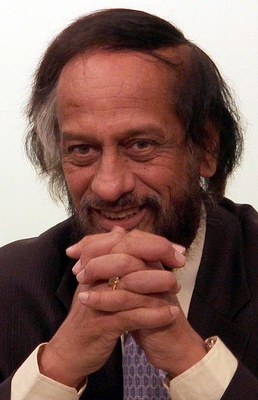
Will Ukraine’s attack on Russian territory lead to the seizure of the Kursk Nuclear Plant?
BY Dmitry Gorchakov As the Ukrainian army’s cross-border incursion into Russia’s Kursk Region rages into its fourth day, the objectives of the sur...
News

Publish date: December 17, 2009
Written by: Gøril Tjetland
News
Pachauri stressed the need for carbon-negative energy solutions that reduce the concentration of CO2 in the atmosphere when he visited the EU’s Zero Emission Technology Platform (ZEP) at their arrangement in Copenhagen this Sunday.
Pachauri announced that carbon-negative solutions will be wrapped into the UN’s fifth Assessment Report. The previous fourth Assessment Report caused a sensation when it was disclosed in 2007.
Pachauri has led the IPCC since 2002, and received the Nobel Peace Prize in 2007 for this work.
“Extremely attractive potential”
In Copenhagen, Pachauri stressed that drastic measures are needed to reduce global CO2 emissions. He pointed out that the need for public education around “the extremely attractive potential” for CO2 capture and storage (CCS) is essential.
“All carbon emissions-reducing technologies require effective measures. This applies to CCS more than any other technology (so that it can) be developed to a level where it is commercial and environmentally viable,” said Pachauri.
Pachauri pointed to International Energy Agency (IEA)statistics that indicate that CCS requires a global investment of over $2.5 to $3 trillion dollars from 2010 to 2050 in order to avoid critical emissions of CO2 to the atmosphere – a stake in a magnitude that is “beyond the financial capacity of the industry .”
Facts:
• If no drastic measures are taken to reduce CO2 emissions, the average global temperature to rise by more than 2 º C – which means devastating consequences for the climate (IPCC)
• Fossil fuels will continue to dominate energy supply for decades to come (IEA)
• CCS has the potential to cut CO2 emissions by up to 55 percent by the end of the century (IPCC)
• CCS requires a global investment of over $2.5 to $3 trillion dollars from 2010 to 2050 (IEA)

BY Dmitry Gorchakov As the Ukrainian army’s cross-border incursion into Russia’s Kursk Region rages into its fourth day, the objectives of the sur...

In this news digest, we monitor events that impact the environment in the Russian Arctic. Our focus lies in identifying the factors that contribute to pollution and climate change.

A survey of events in the field of nuclear and radiation safety relating to Russia and Ukraine.

But it’s unlikely to impact emissions from shipping along the Northern Sea Route.